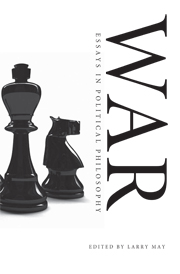2 - The Jus in Bello in Historical and Philosophical Perspective
Published online by Cambridge University Press: 05 June 2012
Summary
The traditional distinction that is often held to define the just war tradition – between jus ad bellum (justice of war) and jus in bello (justice in war) – is, of course, a very familiar one to us today. It is as well to remember, therefore, that in fact, it has a history and that the history it has is by no means devoid of general philosophical interest. My chief task in this chapter is to look at the history and emergence of the jus in bello and I shall get onto that task shortly. But I want to dwell for a moment on that “general philosophical interest” that I take the history to have, since I shall want to return to it towards the end of this chapter.
I have elsewhere argued that among the more important aspects of the recent development of the tradition has been the move to a particular kind of jurisprudential logic for it, one that has partially replaced or overlaid the earlier casuistic form that the tradition took in its medieval and Scholastic heyday and that included a rather different form of jurisprudential reasoning. Without repeating that argument in detail here, let me just suggest that among the reasons for this shift is the dominance of the jus in bello in the literature of the just war roughly from the early to the mid-seventeenth century onwards.
- Type
- Chapter
- Information
- WarEssays in Political Philosophy, pp. 30 - 46Publisher: Cambridge University PressPrint publication year: 2008
- 4
- Cited by

